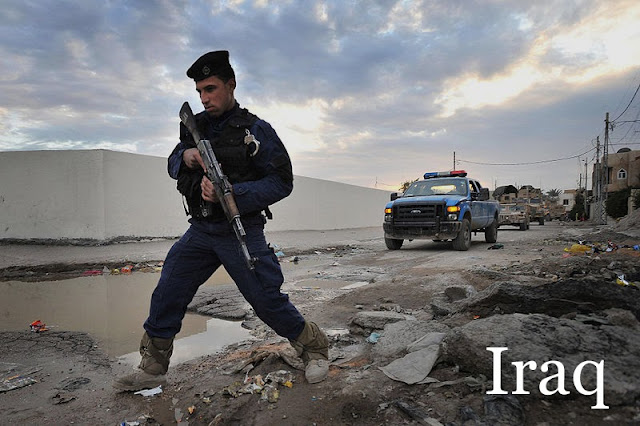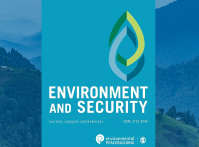-
Water, Power, Trash, and Security: Interview with Mishkat Al Moumin, First Iraqi Minister of the Environment
August 31, 2010 By Schuyler NullAs the final American combat brigade pulls out of the country, the prevailing opinion in the United States about Iraq at the moment seems to be one of “bad politics are better than no politics,” and that despite continued violence (albeit significantly lessened from 2006-2007 levels), the American mission is largely finished. However, serious challenges remain, one of the most significant being the government’s continued inability to supply basic services to a growing population.
The New York Times recently reported that despite billions of dollars spent on energy infrastructure in the seven years since the invasion – $5 billion by the U.S. – Iraqi power plants still average only 53 percent of total capacity. In Baghdad, where temperatures routinely reach well over 100 degrees Fahrenheit during the summer, electricity theft is common and usage is limited to five hours a day.
South of the capital, protests over energy shortages and inaction by the stalled government turned deadly last month after police opened fire on protestors, killing two. The incident caused the resignation of Electricity Minister Karim Waheed who claimed he needed more time to develop projects and said Iraqis were “not capable of being patient in their suffering,” according to the BBC.
Investment in the country’s water infrastructure is dangerously lacking as well, to the point of threatening national security, according to Water Minister Abdullatif Jamal Rashid. As reported by Reuters, Rashid cites depleted resources, lack of rainfall, desertification, and a growing population as threats to the country’s already stressed water supply, which went through catastrophic drought in 2008-2009.
Perhaps the most worrying aspect of Iraq’s current water and electricity shortfall is the outlook for the future: the country is set to double in population by 2050. According to the Population Reference Bureau, Iraq along with Yemen and the Palestinian Territories, are the clear outliers in Middle Eastern demographics. In each, youth represents greater than 40 percent of the population, average total fertility rate is higher than four, and total population is expected to more than double over the next 40 years.
Speaking to The New York Times, top U.S. commander in Iraq General Ray Odierno said, “Everybody considers 1 September, we’re abandoning Iraq. We’re not abandoning Iraq. What we’re doing is changing our commitment from a military-dominated commitment to one that is more civilian-led, which is what I think they need more.”
The New Security Beat contacted Iraq’s first Minister of the Environment, Mishkat Al Moumin – now working in Washington, DC – to discuss these issues and how they may effect the country’s continuing security and development challenges.
New Security Beat: You mention on your blog True Stories about Security that the situation in Basra, where two Iraqis protesting electricity shortages were recently killed, is really an environmental security problem. How do you think that situation could have been avoided?
Mishkat Al Moumin: I think the situation could have been avoided by taking two steps: 1) Provide electricity locally by allowing each governorate to build the local infrastructure to supply electricity within the governorate itself; 2) Provide a sense of public ownership to electricity stations.
NSB: Iraq’s water minister recently called the water infrastructure situation “a threat to national security.” Would you agree with that assessment? What was the water supply situation like when you took office and how has it changed?
MM: I definitely agree with Minister Latif Rasheed on his analysis. The lack of proper infrastructure to supply water aggravates the population against the government.
The water supply situation was critical when I was in office. For example, according to the Ministry of Water Resources only 32 percent of the Iraqi population enjoys access to safe drinking and 19 percent enjoys access to a good sewage system. However, during my time the Ministry of the Environment provided safe drinking water to marginalized communities such as Sadr City and Fallujah City. You can find a note of appreciation from the communities in Sadr posted on my blog.NSB: Where else do you see environmental security issues in Iraq playing a larger role than is perhaps well known?
MM: There are two environmental policies that need to be reformed to encompass security threats: trash-pick up policy and safe drinking water policy.
Piles of trash provide strategic hiding places for bombs and explosive devices and the lack of safe drinking water is increasing distrust and opposition to the government.NSB: You have also done a great deal of work on women’s issues in Iraq, heading up the Women and the Environment Organization (WATEO) non-profit. What specific connections between gender issues, demographics, the environment, and security do you see in Iraq?
MM: Environmental management can be utilized as a policy tool to bridge gender gaps, as well as security gaps. To effectively protect water resources and other environmental resources and services, the primary stakeholders should be involved in any policymaking that is designed to regulate them.
In Iraq a major stakeholder in that respect are women, especially marginalized women. In order to achieve security in a certain community, all members of that community must be involved in security planning and implementation. For example, women are the primary users of water resources. During their walks to collect water, they may encounter suspicious activities, such as insurgents hiding a bomb or an IED. When they try to report these activities to the men in their communities, the men do not believe them. However, in one of the communities where WATEO operates, the community leaders listened to the report of an 18 year old woman and the perpetrators were arrested.
For WATEO, developing this trust is the keystone in bridging gender, environment, and security issues in the rural communities of Iraq.NSB: Iraq’s population is expected to double over the next 40 years. What steps do you see as necessary to prevent conflict over the country’s finite natural resources in the future?
MM: First, enact environmental policies at the local level rather than at the national level, which would provide more resources for the people. Enacting policies at the local level establishes a sense of ownership among local communities and provides them with an incentive to protect their environmental resources. Moreover, it provides a better opportunity to involve the main stakeholders in policymaking.
Second, invest in new technologies which can preserve and maintain current resources. New technologies will enable Iraq to protect and add more to its environmental capital. For example, Iraq would benefit greatly from new technology to better utilize ground water for domestic and agricultural use.Sources: BBC, Foreign Policy, New York Times, Population Reference Bureau, Reuters, USA Today.
Photo Credit: Adapted from “An Iraqi policeman steps over trash and mud during a walking patrol” in the Rashid district of Baghdad, courtesy of the U.S. Navy and Wikimedia Commons.
 A Publication of the Stimson Center.
A Publication of the Stimson Center.







